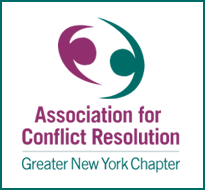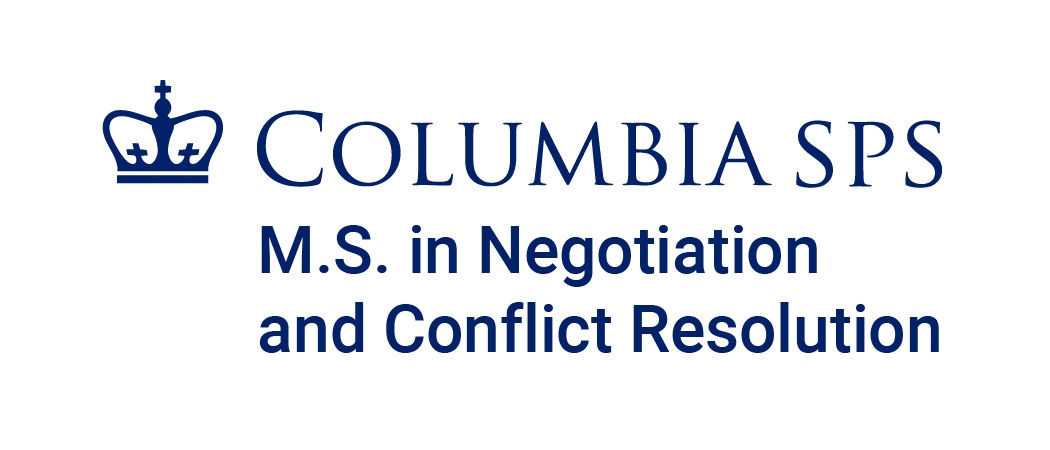|
Click here to register for the conference
Workshop Descriptions
CLE sessions: The workshops with CLE credit listed below have been accredited by Cardozo Law School.
Presenters, panelists, and moderator biographies are listed at the bottom of this page in alphabetical order.
Session One - 9:30 AM to 10:30 AM
1A. Higher Education In Conflict Resolution: Benefits & How It Can Help You
Format: Panel PresentationPanelists: Beth Fisher-Yoshida & Noam Ebner
Moderator: Elizabeth Crowe
In the emerging field of Conflict Resolution, potential students face distinct and diverse options when choosing a graduate program. Professor Noam Ebner chairs Creighton University’s online graduate program in Negotiation and Dispute Resolution and Dr. Beth Fisher-Yoshida is the Academic Director of Columbia University’s Negotiation and Conflict Resolution program. These panelists from two thematically different graduate programs will provide insight into what students from varied backgrounds can expect as students and as graduates. Additionally, panelists will explain how experienced professionals can benefit from learning theory in their existing practice of conflict resolution.
1B. Conflict Resolution In A Digital Age
Format: Workshop/PanelPresenters/Panelists: Allison Skinner, Honorable John Hughes (Ret.), & Peter S. Vogel
CLE credit: 1.0 Professional Practice. This program will provide transitional/non-transitional credit to all attorneys.
In a digital age, discovery disputes involving electronically stored information (ESI) continues to increase. The judiciary and litigators need help resolving these disputes in an efficient manner. This program provides: an overview of e-discovery issues; an exploration of how ADR can be used to resolve e-discovery disputes; and information on how to expand your ADR services to include e-discovery. This presentation will provide an overview of the role of ADR for e-discovery disputes.
Learn how neutrals can be used to resolve e-discovery disputes. You will also learn how to improve your ADR skills as the arbitrator and/or mediator handling e-discovery disputes. This program is geared towards mediators, arbitrators and attorneys. Litigators who are involved with e-discovery and are interested in the benefits of ADR for case management should also attend.
1C. Psychology & Conflict Resolution
Format: Panel DiscussionPanelists: Sam McNerney, Anastasia Pryanikova, & David Kidd
Moderator: Lesley Spencer
What can psychology teach us about conflict resolution? Several domains might provide answers. Literature on judgment and decision-making demonstrates that the human mind is an epistemic matrix; it focuses on information that confirms its intuitions while ignoring everything else. Worse, we readily give ourselves the benefit of the doubt while viewing others as shallow and ignorant. Outlining research on overcoming these irrationalities may help us overcome conflict.
The psychology of creativity might also give us some clues. Every conflict contains a seed that in the right conditions can germinate into a new understanding, deeper awareness, and creative possibilities. Interestingly, the implications of current neuroscience research for communication, conflict management, and creativity can help you stock your toolbox with brain-friendly conflict resolution strategies.
Finally, social psychological literature on stereotyping and the variability in adults' use of theory of mind suggests we sometimes see others in slightly dehumanized terms. However, with motivation we can use a sophisticated set of processes that attunes us to the subjective experiences of others. Research also provides strategies empirically shown to promote interpersonal sensitivity, with a special focus on the arts (e.g., literature, theater).
Join this panel for a brief lesson in what psychology can teach us about conflict.
1D. Confidentiality & Communication Styles In Mediation
Format: Panel DiscussionPanelists: Marc Miller & Richard Weil
Moderator: Angela Gius
Communication is critical to mediation. How effectively parties, attorneys and mediators talk to each other often determines how successful the mediation will be. One potential barrier to effective communication is participants’ uncertainty about confidentiality which, in New York, is a valid concern. Another potential barrier to effective communication is participants talking “at” each other, rather than “with” each other while focused on the goal of listening, being heard, and ultimately being understood “by” each other.
In his presentation, Marc Miller will discuss the value of understanding the distinctive “styles” that characterize the ways people most comfortably communicate and integrate information. He will explain how valuable it can be for professional mediators to recognize the basic differences between introverts and extroverts, and between the four “DISC” behavior categories, to dramatically improve the level of productive communication and successful resolution of conflict in the mediation process.
Rick Weil will examine the role of mediation confidentiality and discuss the Federal and State statutes, court rules and decisions, as well as contracts, that define and protect mediation confidentiality in New York.
Together, Marc and Rick will examine areas where their topics overlap, such as: modes of communication that promote or impede settlement; when and how to disclose and share information; whether and how frank to be with the adversary and the mediator; and the importance of listening and speaking with awareness of how the other participants are likely to hear you best.
1E. Using Your Conflict Management Training To Grow Your Business In The 21st Century
Format: WorkshopPresenter: Jason Dykstra
You’ve spent thousands of dollars getting training to be able to do what you do best - conflict management. You’ve learned all the skills - you can actively listen, build trust and rapport, effectively communicate, reframe, and ask open ended questions. You’re ready to open a business and let the clients roll in! Except there is one problem, you don’t have the first clue about the evil “M” word - marketing. This presentation will show you how to use that conflict management training and focus it externally on social networks to begin to grow your referral sources, target your perfect clients, and grow your network.
Session Two - 10:45 AM to 11:45 AM
2A. Mainstreaming Volunteer Mediators: New Insights on the Contributions and Consequences of Volunteer Utilization
Format: WorkshopPresenter: Justin Corbett
Volunteer mediators have played an influential role in mainstreaming conflict resolution throughout our communities and institutions. With an estimated 20,000 volunteer mediators contributing their time and expertise to local community mediation programs, pro bono agencies, and court rosters, our field's volunteers contribute significantly to the internal development and external image of the dispute resolution profession.
Join us as we review the findings from a recent field-wide survey of volunteer mediators. We'll explore volunteers' backgrounds, contributions, and motivations, noting both featured profiles and emerging trends throughout. We'll be looking at how our institutions can more effectively engage and acknowledge the contributions of volunteer mediators, while also tackling concerns related to their utilization, and the resulting impacts on accessibility, marketability, and the broader public perception of the ADR profession. Lend your insights as we review and refine recommendations on how the field can continue leveraging our mighty volunteer rosters in ways that responsibly and sustainably further our aims of mainstreaming conflict resolution.
2B. Enforcing International Arbitration Awards
Format: Panel Discussion (click here for materials)Panelists: Charlene C. Sun & Yasmine Lahlou
Moderator: James E. Berger
CLE credit: 1.0 Professional Practice. This program will provide transitional/non-transitional credit to all attorneys.
Today's global business arena has broken down national borders like never before, and international arbitration has become an increasingly important dispute resolution mechanism. Arbitration tribunals lack state authority, however, and thus lack the ability to enforce their awards independently. Parties who prevail in international arbitration proceedings must therefore rely on national courts -- often outside the arbitral forum -- to enforce awards against recalcitrant award debtors. The panel will discuss the legal regimes and process by which international arbitration awards may be enforced, with a focus on applicable international conventions and U.S. law and procedure.
2C. Reading People: Emotional Awareness & Evaluating Truth
Format: WorkshopPresenters: Maggie Pazian & Michael Palestina
The average ability of untrained people to detect deception is 54%, not much better than chance. The research and science of Dr. Paul Ekman has uncovered the most reliable indicators to reading people. One of those indicators is found in the face.
There is a distinct set of muscular configurations in the face that are directly responsible for communicating emotions with universal properties. Universality and spontaneity of these emotional expressions are what make facial expressions so uniquely insightful and reliable vehicles to people reading.
This interactive workshop will present the science and background behind the universal expressions and introduce the 5 channels of communication leading to better people reading skills!
This session is relevant to anyone who is interacting face to face with another person. It is a topic of interest for many professions. Most importantly, it is an educational program that will work towards dispelling the many myths of detecting deception while introducing important skills by building participants observational skills through a method that is reliable yet non-invasive using only the power of observation and listening skills.
2D. Avoiding The 10 Mistakes That Mediators Sometimes Make
Format: WorkshopPresenter: Stephen Hochman
The program will consist of an interactive dialogue with the audience discussing the extent that a mediator who is hired by the parties to help them settle a dispute involving a litigation or potential litigation would be making a mistake by failing to do any of the following: Failing to get the right persons at the table; Failing to explain the mediator’s role as “agent of reality”; Permitting settlement negotiations to begin prematurely - i.e.; Failing to orchestrate the negotiations; Failing to recognize that unrealistic expectations must be lowered gradually; Being evaluative (a) too early or (b) in a joint session; Failing to suggest ways to avoid reactive devaluation of sensible settlement proposals from the adversary; Believing “bottom line” offers or demands; Failing to “test the waters” before making a mediator’s proposal; Being impatient or failing to be persistent or giving up prematurely.
1.0 Skills CLE credit is pending. This program will provide transitional/non-transitional credit to all attorneys.
2E. Making a Living as an ADR Professional
Format: Panel DiscussionPanelists: Jessica Rothberg, Elizabeth Clemants, & Daniel M. Weitz
Moderator: Eric Goldman
In this panel discussion, a newly trained mediator, Eric Goldman, will ask the tough questions to Dan Weitz (NYS - Unified Court System), Jessica Rothberg (Collaborative Lawyer and Family Mediator) and Elizabeth Clemants (Generalist Mediator and Trainer) on how they have managed to build full-time, successful mediation careers for themselves in a world where everyone says "it is tough to be a successful mediator." In fact, it can be done in many different ways and this workshop will help those just starting out to figure out the secrets to how.
Session Three - 1:30 PM to 2:30 PM
3A. Student Paper Panel Discussion
Format: Panel DiscussionPanelists: Submission Winners: Taylor Yess, Mark Gough, & Brian Farkas
Moderator: Glen Parker
For the first time in its history, this year’s conference features a student writing competition in which students from the Greater New York Region were invited to submit scholarly work addressing the theme of this year’s conference. Student submissions were assessed in three categories – Undergraduate, Graduate and Law – to ensure meaningful participation in various fields of scholarship. Papers were blind-judged on 5 criteria (significance of the topic, alignment with theme, originality and creativity, quality of analysis, and quality of writing) by experienced professionals in our field. Among the 3 first place prizes awarded is a year membership to ACR-GNY, publication of their work on the ACR-GNY website and $250. Additionally, all first place prize-winners received an invitation to present their paper at the conference. Join us as winners of the first ACR-GNY Student Writing Competition present their papers, and help us fulfill to our vision of “Mainstreaming Creative Conflict Resolution."
3B. Holding International Corporations & Other Commercial Actors Accountable Through Traditional & Non-traditional ADR Forums
Format: Panel Discussion
Panelists: B. Ted Howe, Julie TannerModerator: John Berton
1.0 Professional Practice CLE credit is pending. This program will provide transitional/non-transitional credit to all attorneys.
In this panel we will explore various alternatives to litigation by which international forums other than the courts may be utilized to resolve conflict among international corporations and/or quasi-state entities engaged in commercial activities. We will review the forums in which international ADR has traditionally taken place, discuss how different approaches may be dictated by differing local cultural or political norms, and, to the extent applicable, look more broadly at the political, human rights and social context in which these disputes and alternative resolutions take place.
3C. Mastering The Nuances of Nonverbal & Verbal Interchanges
Format: WorkshopPresenter: Margaret "Peggy" Herzog
This discussion will explore nonverbal and verbal nuances of every ADR interchange. The non-verbal components of attitude, receptivity, cue delivery, cue receipt, presence and posture will be explored. We will also look at essential verbal components of dialogue including pace, prosody and tone, active listening/mirroring, reframing and contextualizing. Nuances will be highlighted as we engage in practice dialogues in dyads and in the group setting, incorporating the non-verbal and verbal nuances that have been identified.
This workshop appeals to anyone who yearns to increase their effectiveness in verbal and nonverbal interchange. It appeals to the beginner as well as the advanced ADR professional as it is directed toward awareness of nuance that is an ongoing professional challenge.
3D. Coaching In The Caucus: Expanding The Role Of The Mediator
Presenters: Michele Riley & Beth Fisher-Yoshida
CLE credit: 1.0 Skills. This program will provide transitional/non-transitional credit to all attorneys.
The role of the mediator has been described as one of facilitating negotiation between parties to a dispute. Mediators engage in such facilitation by using many techniques, including caucusing with the parties for the purpose of identifying their interests, reality testing their proposals, etc. While these are worthwhile activities, if mediation is really a process that belongs to the parties and if it is “their negotiation” as we mediators like to say, shouldn’t one of the primary tasks of mediators be to coach the parties on how to effectively negotiate with one another? This presentation will explore the role of the mediator as coach, the contexts in which coaching in caucus might be needed, and the areas in which coaching in caucus could be beneficial.
3E. We Can Work It Out: What The Beatles Taught Me About The Dialogue Facilitation At Home & Abroad
Presenter: Brad Heckman
Metaphors, imagery, stories, music and popular culture will provide the backdrop for this workshop on intergroup dialogue. The presenter will share lessons learned from his work designing group facilitation processes, using stories, music, metaphors, and drawings related to the musical group, the Beatles. In addition to being icons of their time, the Beatles provide us with great source material on coping with conflict and harmonizing diverse voices. Using examples of Beatles do’s and don’ts, the workshop will provide insights into some of the key challenges one faces in facilitating multi-party dialogue – from stakeholder analysis, to dealing with spoilers, to working with the media, to building a sustainable platform for community-wide conversation.
An amateur artist and something of a Beatles aficionado, the presenter will offer visual and metaphorical snapshots of events from the Beatles’ career and will draw specific analogies to his work fostering intergroup dialogue in the Balkans, Eastern Europe, Latin America, and here in New York City. The presenter will display his own artwork in the workshop, which will be published in an upcoming edition of the Cardozo Journal of Conflict Resolution.
Session Four - 2:45 PM to 3:45 PM
4A. Foreclosure Mediation: Promised, Actual, & Possible Results
Format: Workshop/LecturePresenters: Heather Scheiwe Kulp
This presentation and discussion will highlight recent research about the effectiveness of foreclosure mediation. Since 2007, federal, state, county, and municipal governments have taken interest in mediation and other dispute resolution processes as mechanisms to mitigate the effects of the foreclosure crisis. Each program has a different goal or goals, but does the dispute system design match those goals? That is, does foreclosure mediation “work”? To find out, researchers from Resolution Systems Institute, a not-for-profit research and consulting organization based in Chicago, analyzed the available data from over 25 foreclosure mediation programs. One of those researchers, Ms. Kulp, will present their findings, highlight important observations, and suggest dispute system design modifications that are needed for foreclosure mediation programs to better meet their goals. The answers may be surprising. Participants will be encouraged to share their experiences in foreclosure dispute resolution programs and discuss dispute system design principles that they have found effective.
4B. Seeking The Limits of Arbitral Autonomy: "Competence-Competence" & Judicial Review
Format: Panel DiscussionPanelists: Chiann Bao & James Berger
Moderator: James Rhodes
CLE credit: 1.0 Professional Practice. This program will provide transitional/non-transitional credit to all attorneys.
One of the principle advantages to arbitration is that it affords parties the ability to refer their dispute to private neutrals and avoid time-consuming and expensive litigation. Too often, these advantages are lost when parties that lose at arbitration seek to avoid the results of that arbitration by challenging the manner in which the arbitral proceedings were conducted. One of the challenges brought most frequently is that the arbitrators exceeded their jurisdiction and ruled on issues not properly referred to them. U.S. courts have grown increasingly wary of these challenges, and the Second Circuit has ruled repeatedly that where parties agree to arbitrate under rules that allow arbitrators to decide their own jurisdiction -- a provision known as a "competence-competence" provision -- that agreement will foreclose independent judicial review of the arbitrators' jurisdictional rulings. Because most arbitral rules contain such a provision, these rulings have the effect of insulating arbitral rulings from this form of review. This panel will discuss the Second Circuit's rulings, with an emphasis on its impact on party autonomy and the extent to which it places U.S. arbitration law out of step with the law of other jurisdictions.
4C. Normalizing Conflict With Humor
Format: Workshop (click here for materials)Presenters: Elaine H. Nissen & Charles Newman
Can we use humor to reassure people and make them more comfortable as they work through conflict? Three words: yes, but carefully.
Traditional dispute resolution mechanisms marginalize parties. At the courthouse, for example, parties are often told to sit in the other room and not say a word while the professionals do their inscrutable things and report back a result. In mediation, though, parties can be reminded of the parts of their relationship that once worked. It can be a process in which they see themselves using familiar skills: talking, listening, thinking. Humor can break the ice, resurrect positive emotions, restore communication and encourage creativity. Humor can make parties feel more at home in a mediation session, and therefore more empowered to participate fully. Humor can play to the parties’ and the mediator’s undefined strengths. It can help parties want to be there, and to reach resolution.
This program offers an overview and practical tips about when and how to use humor. Just as important, we will examine how humor can backfire and what to avoid. Participants may bring their own war stories of successful and unsuccessful undefined uses of humor in ADR.
4D. Trust In Negotiation & Dispute Resolution: What We Know So Far & What We Need To Learn
Format: WorkshopPresenter: Noam Ebner
Trust is considered to play a central role in negotiation and dispute resolution. Trust researchers from the conflict field and outside of it have conceptualized trust and made this challenging notion tangible and applicable. While research findings on trust have the potential to help practitioners engaging with conflict, there are many areas of trust requiring further exploration – for example, the effect of our technological development and environment on the forming and maintenance of trust. Finally, while trust is recognized as a central concept in the field, it tends not to be spotlighted in the field’s teaching to the extent that other central concepts are.
The following three elements will provide the structure for this presentation / workshop. First, trust will be defined and the role it plays in negotiation and dispute resolution will be explored. Second, new areas for research on trust will be identified, including not only pointing out gaps in the literature, but also involving practitioners, teachers and researchers in a discussion centering on what they would like to know in order to be more effective. Finally, the reasons that might underlie the way trust is currently taught in negotiation and mediation classes will be discussed. Participants will brainstorm methods for teaching trust in these contexts and engage with each other in constructing pedagogy for classroom use.
4E. Resolving Conflict Using Initiatives Related To Corporate Social Responsibility (CRS)
Format: WorkshopPresenter: Derek Linsell
Through a unique and rare ability to influence an organization, Derek Linsell promotes Corporate Social Responsibility (CSR) as a way to bring openness and resolve ongoing conflict within organizations. CSR is the integration of social and environmental factors into corporate decision-making, acting as both a risk management and value creation strategy.
During times of organizational conflict, group cohesion is reduced, which can negatively impact performance. One way to restore both task and social cohesion is to increase goal interdependence among co-workers. When groups come together to strive for a collective goal, i.e., a CSR initiative, the group focus often shifts from what was previously causing tension, to a mutual, positive objective. This common endeavor will often have a two-pronged effect; it creates a cohesive and supportive work culture, and also serves the wider community and/or environment.
Introducing CSR projects as a potential method for conflict resolution also helps employers to identify and capitalize on team strengths and styles. Conflict is often reduced as the flow of CSR ideas and communication from senior management to the grassroots levels create trusting, collaborative and innovative organizations.
Session Five - 4:00 PM to 5:00 PM
5A. Federal Mediation and Conciliation Service: Mediation & Other ADR Services
Format: Panel DiscussionPanelists:FMCS mediators and staff
Moderator/Panelist: James Kinney
The Federal Mediation and Conciliation Service (FMCS) has been providing mediation and other ADR services to the unionized federal and private sectors since 1947. Created from the passage of the Taft-Hartley Labor Management Relations Act (LMRA), FMCS has developed and delivered services to multiple federal government agencies and private companies and unions that include traditional mediation, facilitation, grievance mediation, and trainings in negotiation, mediation, and other workplace problem-solving processes. FMCS provides a roster of Arbitrators to parties submitting for arbitration and in addition provides consulting and assessment program designs. This workshop will describe the services of FMCS, how the agency functions, and how some of this work impacts the field of Conflict Resolution.
5B. Mediating Corporate/Community Conflicts: An Introduction
Format: WorkshopPresenter: F. Peter Phillips
This program will feature the presentation and discussion of an award-winning 30-minute film showing how mediation has played a critical role in facilitating dialogue and resolution of generations-old conflicts between companies and the communities in which they operate. Three stories are interwoven: A copper mine that displaced and impoverished a Peruvian village; a hydroelectric dam that disrupted the sacred burial grounds of two tribes in the jungles of the Philippines; and the tribal violence triggered by the extraction of oil and gas, and the subsequent ruin of traditional fishing grounds, in the Niger Delta. The conflicts involve both economic impacts and basic human rights, and at first appear to be intractable. The effect of mediation in each case is therefore all the more jaw-dropping, and few who have seen the film leave dry-eyed. The work of the U.N. Secretary General's Special Representative on Business and Human Rights will also be discussed, as well as the lawyer's role in advising clients about their responsibilities to the societies they affect.
5C. Is Binding Mediation An Oxymoron Unless It Is Made Into A Med-Arb?
Panelists: Norman Solovay & Stephen Hochman
CLE credit: 1.0 Professional Practice. This program will provide transitional/non-transitional credit to all attorneys.
5D. Tips From The Mediation Clinic: Experts Share Their Insight For Experienced & New Mediators
Format: Panel DiscussionPanelists: Lela Love; Rebecca Price; Ray Kramer
Moderator: Robert Sanzillo
CLE credit: 1.0 Skills. This program will provide transitional/non-transitional credit to all attorneys.
This session will feature well-known mediation experts who each teach at a law school mediation clinic. Reflecting on their many years of training and mediation experience, and numerous students who they have taught, each panelist will share tips over the years they have shared with students. Their insight includes discussing topics such as building trust, the mediator's introduction, caucusing, common mistakes, and a variety of other skills that new and veteran mediator's will be able to take away and apply to their practice. Plenty of time will be included for the attendees to participate to ask questions and be part of the conversation.
5E. How To Succeed In Business WITH Really Trying: Developing Contacts For Success
Format: WorkshopPresenters: Tara Fishler & Leiat Klarfeld
Do you run your own business or agency? Are you looking to market yourself to find a new job in this economy? Would you like to make more money? Come to this workshop to explore how to use the contacts you already have, more successfully. CEO, Tara Fishler and her new partner, COO, Leiat Klarfeld, will explain how, after 10 years, they are growing their company, “Customized Training Solutions,” while still being active moms.
You’ll learn about effective marketing techniques and how to turn your existing network into a profitable business. 60 minutes after arriving, you will have a personalized action plan to help bring your business to the next level. Join our session’s “cocktail party” (before the real one) to try out your “sound bite” and promote your business.
Biographies
James E. Berger is partner in the international arbitration practice at King & Spalding LLP, where he represents clients in a broad range of international commercial disputes, with focus on Asia and matters involving states and state-owned enterprises. He currently serves as a Director of the Association for Conflict Resolution of Greater New York, as a subcommittee chairman in the ABA's Section of Litigation, and as a member of the New York City Bar Association's Committee on International Commercial Disputes. He is a graduate of the George Washington University and Fordham University School of Law, and served as law clerk to the Hon. W. Thomas Rosemond, Jr. of the U.S. District Court for the Northern District of Illinois.
Elizabeth Clemants is both mediator and trainer of Planning Change, Inc. She works as an adjunct professor at Cardozo Law School, Fordham Law School, The New School, and has her own training certification program for mediators who are developing private practices. She served in the U.S Peace Corps in Costa Rica, and is a trained and working shaman. She is the incoming president of ACR-GNY (2013-2015) and has served as this year's conference co-chair. She is currently working on a book framing a new paradigm for mediators to understand conflict. She lives in lower Manhattan with her children.
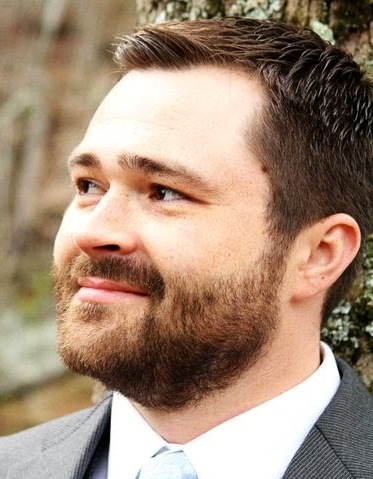 |
Justin Corbett is the Chief Project Officer for Advancing Dispute Resolution, an organization dedicated to moving the field further, faster. In this role, he partners with local programs and ADR networks to develop professional resources which reward members, support practitioners, and enhance the social resonance of our field. He has held leadership roles in the ABA and ACR, and served as NAFCM's Executive Director where he developed the NAFCM Clearinghouse and co-authored several authoritative texts on community mediation. Justin's interests are focused on analyzing big and specialty datasets, trend spotting, and leveraging the latest technologies in ways that connect and inspire. |
Elizabeth Crowe graduated from Fordham University’s School of Law in 2003. Elizabeth participated in Fordham’s Mediation Clinic and Intellectual Property, Media, and Entertainment Law Journal. After graduation, Elizabeth served as an Assistant Public Defender. Subsequently, she worked as a litigation associate at a Philadelphia law firm. In 2007, Elizabeth was appointed an Assistant General Counsel at the New York City Mayor’s Office of Labor Relations, representing the City of New York in labor and employment arbitrations. In 2010, Elizabeth served as Deputy Director of HRA’s Office of Labor Relations. Presently, Elizabeth is working at Planning Change as a legal advisor.
Jason Dykstra is a conflict management specialist who is helping people move from conflict situations to creative solutions. He works as a mediator, conflict consultant, coach and speaker/trainer with businesses, congregations and families. He also consults with conflict management professionals to help them use their skills and training to improve their business by using online tools and various other strategies and tactics. You’ll typically find Jason with his wife and son in Cambridge, Ontario.
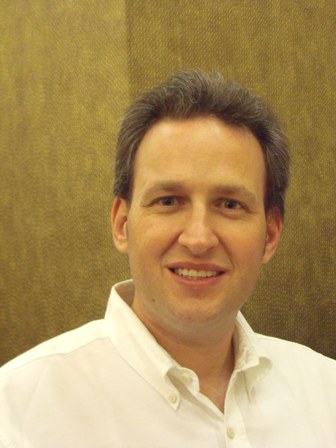 |
Noam Ebner chairs the online master’s program in Negotiation and Dispute Resolution at The Werner Institute at Creighton University’s School of Law. He is a professional negotiator and negotiation consultant, attorney and mediator. Originally from the U.S, he now divides his time between his home and office in Jerusalem, Israel and his activities in the U.S and abroad. After receiving his undergraduate and graduate degrees in law from Hebrew University, Noam shifted focus from adversarial legal processes to mediation practice. He founded Jerusalem-based Tachlit Mediation and Training, which deals with a wide spectrum of issues, ranging from commercial disputes to divorce mediation. Noam also trains mediators for the Israeli court system and consults to community mediation programs. Noam has over ten years of experience teaching at universities around the world. He is a regular visiting professor at Sabanci University in Turkey, and a senior fellow at the U.N.’s University for Peace in Costa Rica. Noam has written extensively on negotiation pedagogy, trust and its role in dispute resolution, and negotiation and mediation processes conducted online. He is co-editor (together with James Coben and Christopher Honeyman) of Assessing Our Students, Assessing Ourselves; Vol.3 in The Rethinking Negotiation Teaching Project published by DRI Press. |
Beth Fisher-Yoshida is a faculty member and the academic director of the Negotiation and Conflict Resolution program at Columba University, School of Continuing Education. She is also a lecturer in the Social and Organizational Psychology Program at Teachers College, Columbia University. Dr. Fisher-Yoshida teaches classes in conflict resolution and related fields and conducts participatory action research. She is the founder of FYI Fisher Yoshida International, LLC, a firm that partners with clients to develop customized interventions aimed at improving organizational performance. The firm focuses on professional and personal development to address change efforts through leadership development, conflict resolution management systems, intercultural communication and diversity, team development and effectiveness, and performance management. One major client is the United Nations and others have included organizations in the Fortune-100 private sector, nonprofit, and government sectors in the U.S., Canada, Asia, Europe, Africa, and the Middle East. She is a Certified Clinical Sociologist (CCS). She speaks conversational Japanese and lived and worked in Japan for 13 years. Dr. Fisher-Yoshida is the author of numerous articles, chapters, edited books, and authored a book on transnational leadership. She received her Ph.D. in Human and Organizational Systems and M.A. in Organization Development from Fielding Graduate University in Santa Barbara, California. She received her M.A., with honors, from Teachers College, Columbia University. She received both a B.A. and a B.S. from Buffalo State College.
Tara Fishler founded “Customized Training Solutions” in 2003. As a Conflict Resolution Specialist, she has taught mediation, diversity, special needs, strategic planning and other skills to thousands of people. Ms. Fishler has been a mediator since 1992. She serves as an arbitrator for the Better Business and is a non-practicing attorney in NY and NJ. She was formerly Director of Mediation Programs for Safe Horizon's Schools division. She has served as President of ACRGNY and Vice President and Chapters Director on the ACR Board of Directors. She is currently President-Elect for the NYSDRA (New York State Dispute Resolution Association). www.tarafishler.com
Angela Gius, a graduate of NYU School of Law, most recently served as a law clerk to the Honorable Lois Bloom in the Eastern District of New York. Her consulting work explores the intersection of conflict resolution, restorative justice, innovative education, and the practices of mindfulness and yoga. Prior to her clerkship, Angela's work involved developing the Leaders in Conflict Resolution program, a student-led effort to develop positive ways to manage conflict in three public high schools in Bushwick, Brooklyn. She is also active in the yoga-service community and has presented a CLE on Developing Judicial Mindfulness to administrative law judges in New York City.
Eric S. Goldman has more than 20 years experience in the entertainment industry, both as lawyer and mediator. As a lawyer, Eric has worked on behalf of numerous Tony and Academy Award winners and nominees. As a mediator Eric is frequently called on to mediate conflicts arising between collaborative artists and producers involving artistic control, revenue sharing and other matters. Eric volunteers his services to various theatres and groups dedicated to the development of new works of theatre, especially new musicals. In 2012, Eric was trained as a mediator under Part 146 of the New York Unified Court System.
Brad Heckman is CEO of New York Peace Institute, which gives thousands of people the resources they need to creatively resolve their conflicts. He is an Adjunct Professor of Global Affairs at NYU, where he received the Teaching Excellence Award. He’s on the boards of the National Association for Community Mediation and the New York State Dispute Resolution Association. Brad was previously a Vice President of Safe Horizon, and International Director of Partners for Democratic Change, for which he developed mediation centers in 15 countries and promoted interethnic dialogue. Brad holds an MA from Johns Hopkins University. Brad blogs at http://thehecklist.wordpress.com.
Margaret 'Peggy' Herzog has been a clinical psychologist, for over 30 years. She has presented nationally to lawyers, financial specialists, mental health specialists, mediators and collaborative specialists at NYACP, IACP and the New York Woman's Bar Association. She has presented internationally in the UK to antenatal counselors. Dr. Herzog has a private practice in Larchmont, New York. She is a founding and current board member of the New York institute of family and divorce mediation.
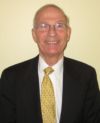 |
Stephen Hochman practiced law for over 40 years, specializing in corporate, commercial and securities law. He was a founding partner in the firm now known as Kramer, Levin, Naftalis & Frankel. Prior to 1968, he was a partner in Kramer, Nessen & Hochman and an associate at Proskauer, Rose, Goetz & Mendelsohn, where he began the practice of law following his graduation from Cornell Law School in 1959. Mr. Hochman has mediated over 350 commercial and other types of disputes, including class actions and financial, employment, insurance, real estate and partnership disputes, approximately 98% of which have settled. Mr. Hochman now practices almost exclusively as a mediator and arbitrator and writes, consults and lectures frequently on ADR subjects. For over a decade he has trained mediators for the Commercial Division in New York County and various other counties of the New York State Supreme Court as well for the NYSBA’s Dispute Resolution Section. |
Hon. John J. Hughes (Ret.), United States Magistrate Judge for the District of New Jersey; Arbitrator and Mediator with JAMS, was a former Judge for the District of New Jersey for eighteen years from 1991 to 2009. Judge Hughes presided over approximately twenty eight hundred settlements, conducted nearly sixty jury trials in consent cases, and managed almost five hundred civil cases a year, including discovery and related motion practice (authoring over 450 opinions). He is highly regarded for skillfully settling complicated cases and for his ability to keep parties focused on the issues to reach an amicable solution. Upon retirement, he was noted for his “hard work and good humor”. Judge Hughes was also a pioneer in the rapidly evolving field of electronic discovery, participating in the formulation of one of the first local District Court Rules for e-discovery and authoring an early opinion encouraging cooperation. He was the first judicial advisor for the United States Court Administrative Office/Justice Department Working Group on Electronic Technology in the Criminal Justice System.
Raymond E. Kramer, Director of OATH, received his Bachelor of Arts degree from the University of Virginia in 1975 and his Juris Doctor from Harvard Law School in 1978. He was appointed to the position of Administrative Law Judge at OATH in 1985. Currently, Judge Kramer oversees the Administrative Judicial Institute at OATH, the mission of which is to provide ongoing educational programs, training and workshops to New York City administrative law judges. He is also an experienced mediator and co-teaches the mediation and advanced mediation clinics at New York University Law School.
James P. Kinney, FMCS Commissioner, has been a Federal Mediator since February 2003. He has mediated labor disputes in the federal and private sector, including the healthcare, manufacturing, maritime and shipping, higher education, retail and sales, communication, transportation and chemical industries. He has also conducted numerous trainings in Conflict Resolution, Negotiations, and Mediation, to unionized workplaces and handled many grievance mediations, workplace and EEO mediations. James has also taught courses at the Rutgers University, NJ Labor Mgt. Center, Columbia University, NY, and Middlesex County College in Edison, NJ. He has also been a volunteer mediator at IMCR, Bronx, NY, NYPD CCRB, and the municipal courts in NJ.
 |
Heather Scheiwe Kulp is the Harvard Law School Negotiation and Mediation Clinical Program’s Clinical Fellow. Prior to joining HNMCP, Ms. Kulp was a Skadden Fellow with Resolution Systems Institute/The Center for Conflict Resolution in Chicago. There, she partnered with courts and government agencies to develop small claims, foreclosure, and other mediation programs for low-income litigants. She has consulted with multiple states, the Uniform Law Commission, and the Department of Justice about best practices in foreclosure mediation. Her work has been published by the American Bar Association Dispute Resolution Section, the Illinois State Bar Association, Wipf & Stock, the Los Angeles Times, the Chicago Tribune, the Minneapolis Star-Tribune, ACResolution Magazine, Cardozo Journal of Conflict Resolution, and the Arkansas Law Review (forthcoming Spring ’13). Ms. Kulp is a graduate of Northwestern University School of Law and Saint Olaf College. Prior to attending law school, she founded and directed a not-for-profit alternative magazine for young women, Alive Magazine. |
Yasmine Lahlou is counsel with Chaffetz Lindsey LLP in Manhattan and has experience advising and representing domestic as well as international clients in international arbitration and litigation proceedings. Having practiced in Paris for over five years before joining Clifford Chance in New York in 2005 and then Chaffetz Lindsey in 2009, Yasmine has developed her skills in both the civil and common law systems. Yasmine attended a graduate program at the University of Texas at Austin Law School and received a Maîtrise en Droit from Paris X - Nanterre University. She is admitted to practice in Paris and in New York. She is fluent in English, French and Italian.
Derek Linsell, B.Ec, B.Theol, M.A. M.A.I.C.D, founded Apricot Consulting in 2003 following a distinguished career in the not-for-profit sector and as a consultant with a Melbourne based business. Derek served as CEO of the Australian Football League Foundation from 2005 to 2008 where he built an extraordinary network of relationships with leaders from many sectors of Australian business, government and not-for-profit organizations. In 2008, Derek created and developed Apricot Consulting in America, working with leaders and global organizations from diverse sectors and industries.
Professor Lela Love serves as a mediator, arbitrator and dispute resolution consultant in a wide range of cases, in addition to two decades of teaching, training, consulting and writing in the dispute resolution field. Since 1985, with Cardozo students, she has mediated hundreds of community, civil court and employment discrimination cases. Independently, she has served as the mediator of family, human rights, civilian and police-officer, school-based and commercial cases. She has arbitrated numerous cases in NYC Civil Court, Small Claims Court and Attorney-Client Fee Disputes. Her mediation of a public policy dispute in Glen Cove, NY, brought widespread publicity to the use of mediation in resolving complex litigation. Professor Love serves on the Council of the ABA Dispute Resolution Section and the NYS Unified Court System Alternative Dispute Resolution Advisory Committee. In addition to her work in ADR, she developed and directed the Small Business Clinic at George Washington University's National Law Center. She is a member of the Bar in New York, New Hampshire and the District of Columbia.
Marc Miller, President of Marc Miller Coaching & Consulting, has a Ph.D. in Psychology from Adelphi University, and a Professional Coaching Certificate from the Professional Coaching Program at the Zicklin School of Business, Baruch College. He is certified in administering and interpreting the DISC and Motivators assessments. He is also the creator of “The Successful Introvert” coaching and training program. Marc serves as Programs Director of the Long Island Coaching Alliance (an ICF Chapter).
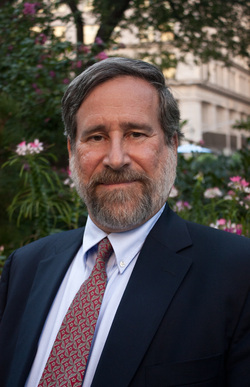 |
Charles M. Newman is a mediator, lawyer and arbitrator in Manhattan, specializing in commercial and divorce matters. He is a member of the Board of ACR-GNY and co-editor of The Report, the professional journal of the New York State Council on Divorce Mediation. He serves on many law and ADR committees. Chuck has been a judge, coach or facilitator in numerous mediation and negotiation competitions, trainings, and continuing professional education programs. He is a graduate of Lehigh University and of the New York University School of Law, where he was awarded an Arthur Garfield Hays Civil Liberties Fellowship. |
Elaine H. Nissen is a mediator, lawyer and collaborative law practitioner in New York and New Jersey, with offices in both states. Most of her mediations are with divorcing couples but she also handles mediations which concern elder-care decision-making and estates, as well some commercial matters. She has been appointed to mediate New Jersey foreclosure cases and will be serving in the Storm Sandy Mediation Program in New York. Elaine graduated from CUNY, Brooklyn College and Brooklyn Law School and has worked as a mediator since 1998
Michael Palestina is a Certified Executive Coach, Leadership Consultant and Facilitator who partners with senior executives, managers and leaders to inspire and enhance individual’s attitudes, behaviors and performance resulting in increased employee engagement and retention. These shifts ultimately contribute to successfully reaching desired goals and exceeding individual and organizational expectations. Mike combines more than 28 years of practical Fortune 500 business leadership experience with more than 350 hours of accredited coaching, emotional awareness and non-verbal communications training and 9+ years of actual coaching experience at senior levels. These diverse experiences provide Mike with real-world appreciation of the challenges senior leaders face throughout their careers and within their organizations.
Glen Parker is the Civil Court Coordinator for New York County at the New York Peace
Institute. Before recently joining NYPI, Glen worked at the Benjamin N. Cardozo School of Law where he was a fellow for the Kukin Program for Conflict Resolution and a Clinical Adjunct Professor of the Mediation Clinic. He received his B.A. in Philosophy at SUNY Purchase and his J.D. and LL.M. (Dispute Resolution and Advocacy) at Cardozo.
Maggie Pazian is an internationally accredited trainer in the science of nonverbal communication and behavior, emotion perception and deception detection. Maggie has more than ten years of experience in both field and academia. She specializes in emotion recognition, micro-expressions, body language, Facial Action Coding System and cues to deceit; delivering dynamic skill building programs for individuals and organizations alike. The focus of her training is to translate the insights developed from leading-edge research on emotion and to create applications and develop training for those interested in improving their communication and people reading skills.
F. Peter Phillips is the writer and co-director of the film, which won the 2012 CEDR Award for Best Publication. He is a mediator, arbitrator and consultant based in Montclair, NJ, and former Sr. V.P. of the CPR Institute. He is a frequent speaker on ADR topics around the United States and internationally, and teaches ADR topics at New York Law School. He serves as Chair of the Dispute Resolution Committee of the ABA Business Law Section and is the author of many books, articles and book chapters on commercial dispute resolution. He blogs atwww.BusinessConflictManagement.com.
Rebecca Price is the Mediation Supervisor for the Mediation Unit at U.S. District Court of the Southern District of New York. She also directs the Mediation Clinic at Brooklyn Law School. She was a Supervising Attorney in the Mediation Clinic at CUNY School of Law and has taught lawyering/legal writing as an adjunct professor at CUNY School of Law and Cardozo Law School, and classes on Alternate Dispute Resolution at the New York University School of Continuing Professional Studies. Rebecca is the former Coordinator of the Special Education/Early Intervention and ACCES VR Mediation Programs for Safe Horizon Mediation Program (now the New York Peace Institute). She is an experienced mediator and litigator with an extensive background working with people with disabilities. Before turning her focus to ADR, Rebecca was the Assistant Director of Visual AIDS, created and oversaw the Children’s Mental Health Project at New York Lawyers for the Public Interest, and was a Senior Attorney in the Special Litigation and Appeals Unit of Mental Hygiene Legal Service. Rebecca is certified as an Initial Mediation Trainer for the Community Dispute Resolution Centers Program of the Unified Court System of the State of New York.
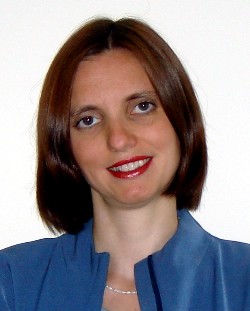 |
Anastasia Pryanikova, M.A., J.D. is a lawyer, linguist, certified coach, and the founder of E-Studio, LLC, a coaching and training company that translates neuroscience insights into solutions in the areas of performance, collaboration, social networking, and conflict management. From a linguist and an ESL instructor, to a corporate lawyer working internationally, to a U.S. Small Business Administration attorney-advisor, Anastasia has been in the business of “changing people’s minds” to facilitate high-stake conversations and decisions across borders, cultures, and industries. As a self-proclaimed tech-geek, Anastasia also explores how technology and social media can boost influence, visibility and strengthen human connection. |
Michele S. Riley serves as a commercial mediator and arbitrator. She mediates a wide range of business disputes for the American Arbitration Association and the International Institute for Conflict Prevention & Resolution as well as litigated cases for the NYS Supreme Court and the Federal district courts in New York. Ms. Riley complements her ADR practice by teaching courses on negotiation and mediation at the International Center for Cooperation and Conflict Resolution and in the Master’s Degree Program in Negotiation and Conflict Resolution, Columbia University. She is a recent past co-chair of the Commercial Section of ACR and a member of the ABA Dispute Resolution Section. Ms. Riley holds an M.A. from Yale University, a J.D. from Georgetown University Law Center.
James M. Rhodes is an attorney admitted to practice in the States of New York and Texas. A litigator, arbitrator and mediator with extensive international and domestic experience, as well as experience as a business executive and house counsel, he has served as an arbitrator or mediator in many commercial and investment disputes, particularly in the international sector. He specializes in high-conflict, complex disputes. In this regard, in the past five years he has served as Chairman, co-panelist or sole arbitrator in many commercial, investment and securities arbitrations conducted under the auspices of various institutions, including the ICC, the AAA, the ICDR, IICPR, FINRA and the EDNY. He also has over 40 years experience as counsel in international arbitrations. In addition, he has served as mediator in over forty commercial disputes, and is on the mediator panels for the AAA, ICDR, FINRA, EDNY, SDNY, the Commercial Division ADR Program of the Supreme Court of the State of New York, New York County, and for Civil, General Equity and Probate Cases, New Jersey Courts.
Jessica Rothberg has been in private practice as a family and divorce mediator for over 13 years and has received extensive mediation and collaborative practice training, including through the Center for Family and Divorce Mediation, The Ackerman Institute for the Family, and the Center for Mediation in Law. Jessica is an active member of the professional mediation and collaborative law communities in New York City and is an Advanced Practitioner member of the Association for Conflict Resolution, an Accredited Member of the New York State Council on Divorce Mediation, a member of the New York Association for Collaborative Professionals, the International Association for Collaborative Professionals and the New York LGBT Collaborative Practice group. Jessica dedicates much of her professional career to training and mentoring aspiring mediators and collaborative practitioners through independent apprenticeships and as an adjunct professor at Cardozo Law School. Jessica has also served as a panelist and/or guest lecturer at various mediation and collaborative trainings throughout New York City.
Robert Sanzillo graduated Fordham Law School in May 2013. At Fordham, Robert served at the Editor-in-Chief of the Dispute Resolution Society and served on Boards for Moot Court, the Fordham Sports Law Forum, and the Urban Law Journal. Additionally, Robert spent a semester mediating as a member Fordham’s Mediation Clinic and competed in a number of ADR based competitions. Robert received a degree in Biology from the Johns Hopkins University in 2007 and spent two years in the St. Louis Cardinals minor league system prior to attending law school. Robert will join Herrick, Feinstein LLP as an associate in October.
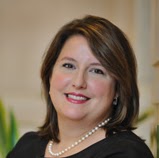 |
Allison Skinner is a neutral at Skinner Neutral Services LLC in Birmingham, Alabama, where she provides neutral services for settlement mediations, discovery mediations, arbitrations, and special master appointments nationally, as well as, e-discovery consulting and expert testimony. Skinner Neutral Services also provides private training on ADR and E-Discovery for the state and federal judiciary, practicing attorneys, in-house counsel, organizations and other neutrals. Allison Skinner is the co-founder of the American College of e-Neutrals (ACESIN), which provides the only directory of discovery neutrals in the world. Allison currently serves as an Adjunct Professor at the University of Alabama School of Law teaching E-discovery and Digital Evidence. Allison is a prolific writer, national speaker and trainer on ADR and e-discovery. She authored the Teacher’s Manual to the E-Discovery and Digital Evidence casebook (WEST, 2010), which is the only casebook currently in use at U.S. law schools. She authored Putting the ‘e’ in Neutral course book (ACESIN 2011). Her most recent scholarly work is Alternative Dispute Resolution Expands Into Pre-Trial Practice: The Role of the e-Neutral, 13 CARDOZO J. CONFLICT RES., 113 (2012). Prior to becoming a full-time neutral, Allison handled complex litigation for domestic and international clients. She received her J.D. from the University of Alabama School of Law and her B.A. from the University of Alabama. |
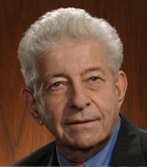 |
Norman Solovay headed the litigation department of a well-known law firm for much of his career. After shifting to settling rather than trying disputes, his election to the National Academy of Distinguished Neutrals was based on mediating a wide range of domestic and international business and personal disputes. However, he was also an early advocate and practitioner of now increasingly popular med-arb “hybrid” process in which the parties agree that their mediator will (in the relatively rare instances where it is necessary) arbitrate unresolved issues. It has been gaining special recognition for obtaining arbitration awards enforceable under the NY Convention at a fraction of the cost and time of a typical international arbitrations, as an impasse-breaker in collaborative law matters, as well as for resolving probate and many other types of disputes where a final resolution is deemed essential but interest based mediation is still a first choice. |
Lesley Spencer is a mediator, trainer and case manager. Her past work includes the administrative and substantive components of case management for corporate clients General Motors, BMW and 7-Eleven Inc. Lesley also has experience overseeing public initiatives in the District and Municipal Court system across greater Boston, coordinating 80 Mediators in eleven courts. This work included building relationships with each court’s Presiding Justice, advocating for the use of mediation, and acting as mentor and coach to court mediators before, during and after sessions. As a mediator, Lesley mediates divorce cases, and harassment order prevention cases. As a trainer, Lesley provides mediation training and coaching at MWI’s Basic Training Programs and at The Fletcher School of Law and Diplomacy. Most recently, Lesley served as a member of the training team at Harvard Law School’s Program on Negotiation spring semester length course on Mediation and Conflict Management.
Charlene Sun is an associate in the Global Disputes practice group of King & Spalding LLP and resident in the New York office. She has significant experience with cross-border litigation, including actions involving foreign sovereigns and the enforcement of foreign arbitral awards, and international arbitration. Ms. Sun also serves as an editor for the International Litigation Quarterly published by the International Litigation Section of the American Bar Association. She received her B.A. at the University of Texas at Austin, and her J.D. at the University of Pennsylvania Law School.
Peter S. Vogel has been involved with the computer industry and electronic data since 1967. Mr. Vogel worked as a mainframe programmer, systems analyst and management consultant for companies acquiring computer technology and related services, and received a Masters in Computer Science. As a lawyer for the more than 30 years, Mr. Vogel combines his technical and business background with his legal expertise to help companies with IT and Internet litigation, dispute resolution and contract negotiation. Because of his unique background and expertise, Mr. Vogel is often appointed as a Special Master to assist courts throughout the United States with eDiscovery & ESI, Internet, eCommerce, intellectual property and computer technology matters. Mr. Vogel is a fellow of the Academy of Court Appointed Masters. He also serves as a court ordered mediator in eDiscovery & ESI, Internet, eCommerce, intellectual property and computer technology litigation. For more than 20 years, Mr. Vogel has served as an arbitrator for technology disputes. He teaches courses on the Law of eCommerce as an Adjunct Professor at the Southern Methodist University Dedman School of Law, and is on the founding Board of Advisors of the SMU Computer Law Review and Technology Journal. In June 2004, Mr. Vogel received a Lifetime Achievement Award for Promoting Technology in the Law from the Computer & Technology Section of the State Bar of Texas. In addition, Peter is regularly recognized as one of America's Leading Lawyers for Business by Chambers and Partners, a Best Lawyer in America, and a Top Lawyer in Dallas, as well as in Texas Super Lawyers.
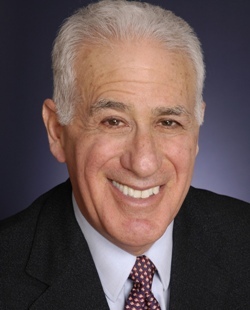 |
Richard S. Weil has mediated over 300 cases in private practice and for Federal and state courts in New York, New Jersey and California. He began his career litigating Title VII cases for the Civil Rights Division of the US. Justice Department and subsequently established a litigation and transactional practice in San Francisco that focused on commercial, employment and family law matters. Mr. Weil has trained mediators and represented clients in numerous ADR proceedings. He spearheaded a survey of New York litigators’ views on mediation for the State and City Bar Associations and, chaired a City Bar program on effective mediation advocacy. He has authored articles for the ABA Dispute Resolution Journal and the New York Law Journal. More information is available at www.weilmediation.com. |
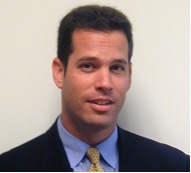 |
Daniel M. Weitz is the Deputy Director of the Division of Professional and Court Services and Statewide Coordinator of the Office of ADR and Court Improvement Programs for the New York State Unified Court System, overseeing a statewide program of court-annexed ADR initiatives directing the Community Dispute Resolution Centers Program; the federally funded Child Welfare Court Improvement Project; the Court Appointed Special Advocates Assistance Program; and the Children's Centers Program. Dan serves as Co-Counsel to the Board of Governors of the New York State Attorney-Client Fee Dispute Resolution Program, and is past Chair of the New York City Bar Association ADR Committee. |
